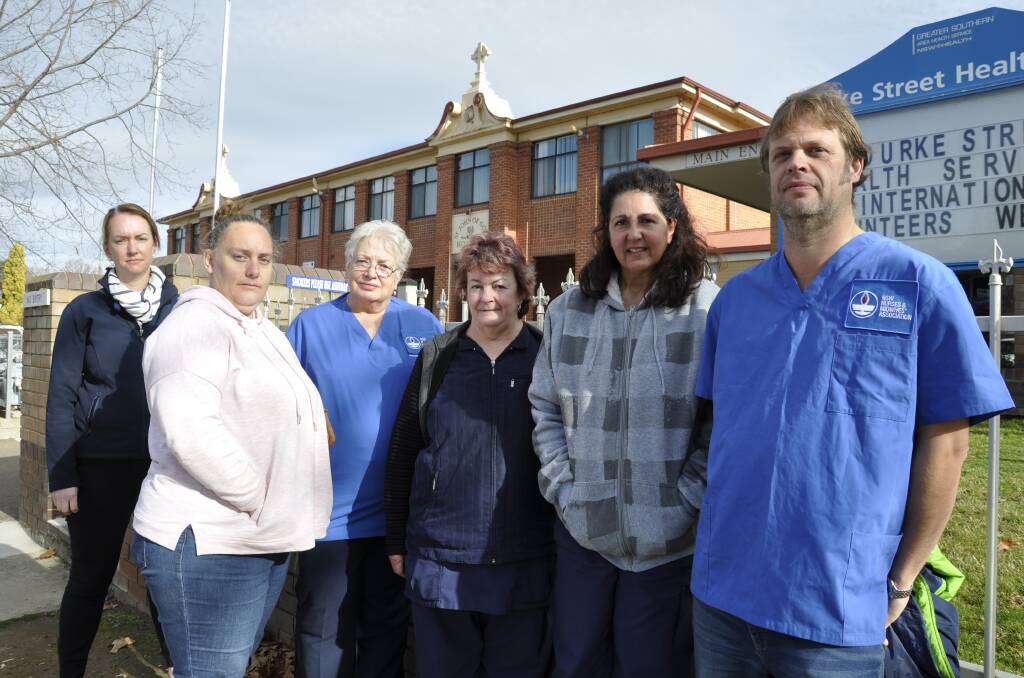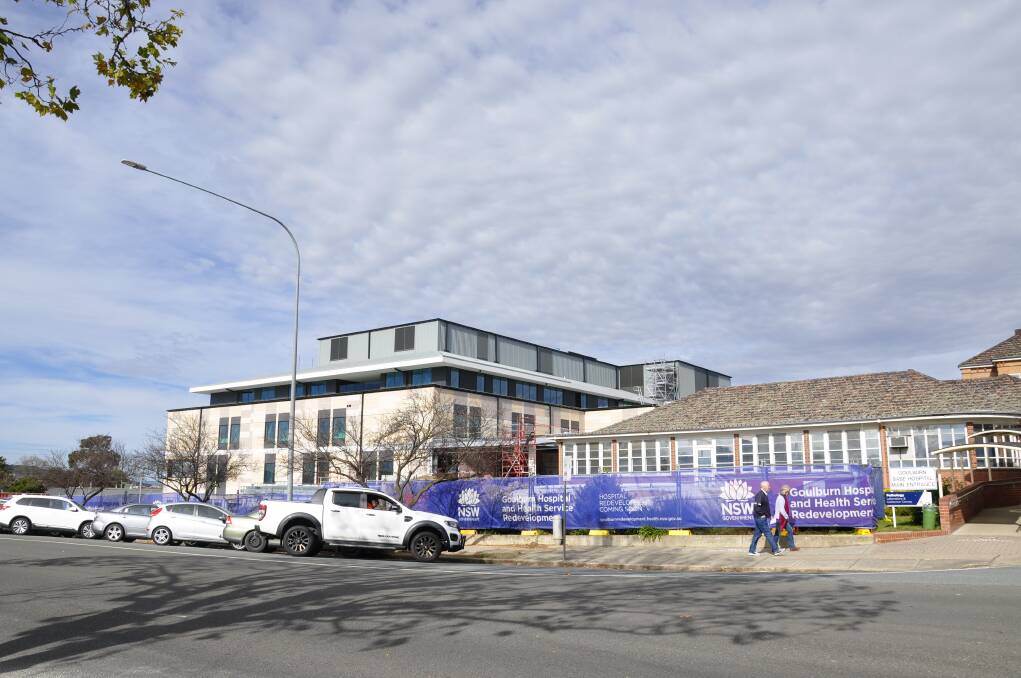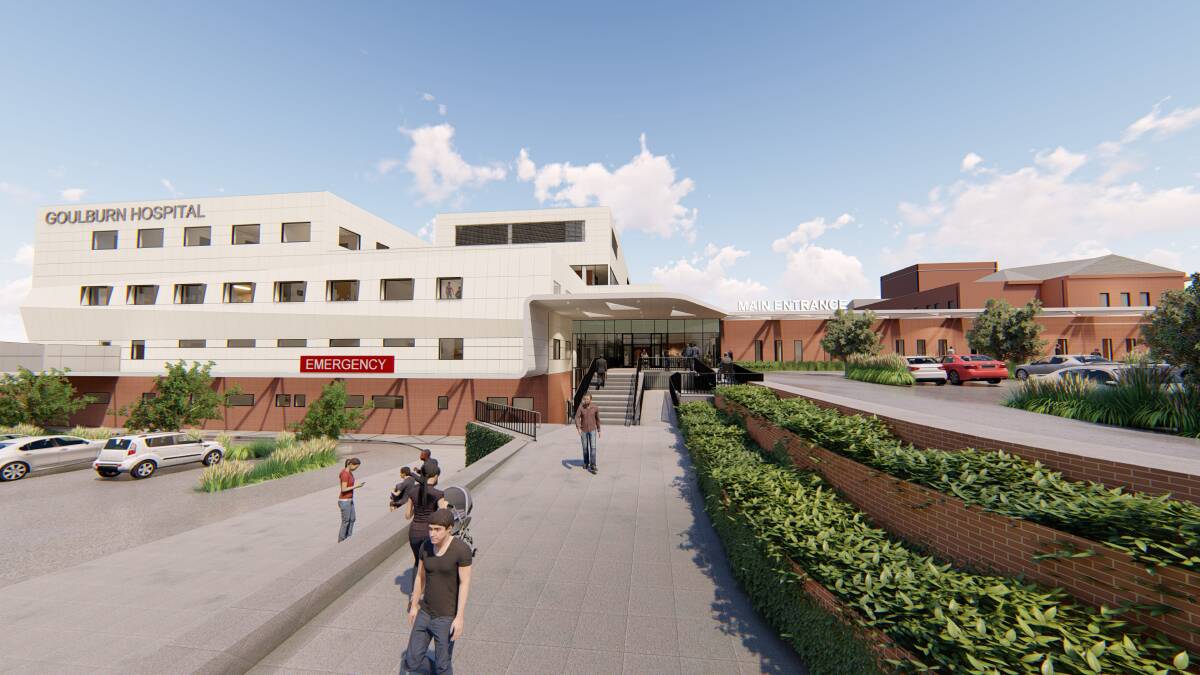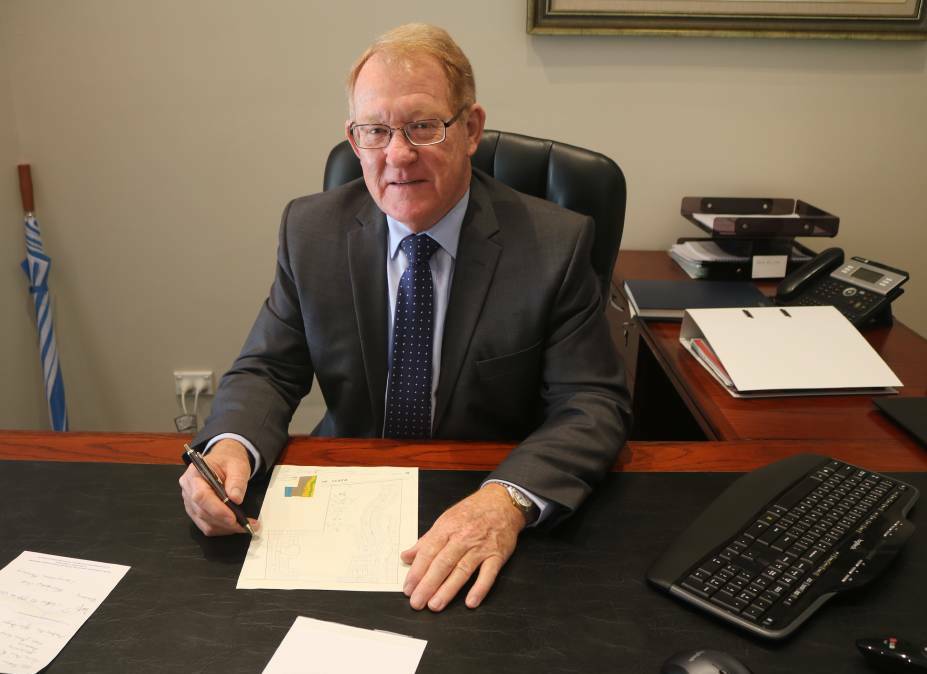
Bed numbers at the sub-acute care Bourke Street Health Service are being reduced ahead of schedule, jeopardising patient care and nurse safety, a union says.
Subscribe now for unlimited access.
or signup to continue reading
It comes despite health authorities pledging four years ago that no services will shift from the facility before Goulburn's redeveloped Base Hospital is complete.
Former Goulburn MP Pru Goward also declared that any relocation ahead of its completion would happen "over her dead body."
But a nurses union and members say the Southern NSW Local Health District (SNSWLHD) is reducing bed numbers now, including those for palliative patients, before the $150 million project's November finish.
READ MORE:
NSW Nurses and Midwives Association southern organiser Pippa Watts said Bourke Street staff had been told bed numbers would be cut from 16 to 10 by the end of June. In addition, only two nurses would be rostered across all shifts.
"I know Bourke Street holds a special place in the community but people have no idea this is happening," she said.
A SNSWLHD spokesperson confirmed two palliative care beds had already been relocated to Goulburn Base.
"There will be no reduction in services nor to staffing levels, including for palliative care, and a gradual transition of existing beds will take place from Bourke Street Health Service (BSHS) to the new Goulburn Hospital over the next six months," she said in statement.
"The transition is being carefully planned and staged to minimise disruptions to patients and services. The District will continue to consult with staff on the transition to the new hospital to ensure they are informed and engaged throughout the process in regards to their future employment."
Association members also told The Post that rehabilitating and palliative patients were being kept at Goulburn Base Hospital rather than being sent to Bourke Street. This in turn was being used to justify the reduced bed numbers.
"I don't understand why it is being done now. Why not leave it until these beds are completely absorbed at Goulburn Base Hospital? That information has not been shared with us," Mrs Watts said.
"Bed numbers are reducing and staff are leaving because they're anxious about their future employment. It is getting harder to do a roster and look after patients properly despite assurances that no one will lose their job and they will be supported to move into their chosen clinical area."
This would create a safety issue with two nurses looking after 10 patients, the union maintained. It did not consider emergencies or the need for breaks.
Nurses have the option of moving to Goulburn Base, which houses a rehabilitation unit. But the upgraded section will only offer four palliative care beds.
While Bourke Street doesn't have a set number of palliative spaces, it cares for patients as they present. The 16-bed capacity Marian Unit in which they are housed also accommodates patients undergoing rehabilitation and awaiting aged care facility placement.
Palliative care will 'fall short'
Association members say the four palliative beds at the upgraded facility are inadequate for Goulburn. The Health District earlier justified this, citing newer models, particularly 'Hospital in the Home' community care.

"There are not enough services to support people in the home. The Health District says there are residential aged care facilities available but all these places are full," one member said.
Another member told The Post there was "a clear need" for more palliative spaces in the upgraded hospital given Goulburn's ageing population. She criticised the community care model, saying it was only available Monday to Friday, with a free 1800 number to call on weekends.
"Would you be happy for your relative to die at home without pain relief?" she asked.
"It shouldn't be up to families to administer this; it is just unsafe."
But the SNSWLHD spokeswoman said the state government was investing in "record funding for palliative care services, with all LHDs funded to hire additional palliative care nurses, allied health clinicians and specialist doctors."
"In the 2020/21 budget an additional $56m over four years was committed to enhance palliative care, including additional non-clinical end of life support packages, specialist allied health professionals, education and training as well as improved bereavement and psycho-social support services, on top of the annual palliative care budget of $220 million," she said.
"This extra funding builds on over $145 million in additional palliative care funding since 2017."

'Specialist skills'
The Association's Bourke Street branch president, Stewart Chapman, said palliative care nurses had specialist skills that those in acute settings didn't.
"The concern is (in the new hospital) that if you're jumping from one to the other you're not giving people the respect and dignity they deserve. Here it is a much quieter environment," he said.
"...We feel our skill mix is being watered down. No one will lose their job but we have skills that can be put to better use in the new facility."
Mrs Watts added that the "disruption" was taking an emotional toll on staff, many of whom were long-term and had a bond with the facility, formerly Saint John of God Hospital.
"Bourke Street is like dying at home for some because it's a homely and warm place," she said.
"The staff make it special. They truly are angels and just want what is best for their patients. They de-prioritise themselves because they're so concerned about what is happening to the building and the place it holds in people's hearts."
The Association is working with members and the Health District to ensure "correct procedures."
Unanswered questions
The Health District did not address several of The Post's questions. These included why the move was happening ahead of schedule, despite its 2018 promise, safe staff levels at BSHS during the transition, whether it was replacing nurses who had left, the hydrotherapy pool's future and whether the Goulburn Base Hospital redevelopment remained within its $150 million budget.
The LHD expected to hand back the Bourke Street building at the end of its lease in early 2023 to landowners, the Canberra/Goulburn Catholic Archdiocese.
"BSHS has played a significant role in the Goulburn Health Service and wider community, and there are many fond memories associated with it," the spokeswoman said.
"Local historical group volunteers, along with members of the project's arts and heritage program, have catalogued every historical item, some of which will be featured as displays in the redevelopment. Staff and community will be given a variety of opportunities to celebrate their experiences and memories of BSHS."
The upgraded hospital includes a new emergency department, new medical imaging department, new intensive care unit and new operating theatres.
There will also be new medical, surgical, paediatric and geriatric inpatient wards with designated palliative care beds and a new maternity and birthing suite.

Mayor seeks clarity
Meantime, Mayor Bob Kirk said he had written to the SNSWLHD about the issue, following community concerns.
"I have asked what has been proposed, would those facilities be replaced in the new hospital and would they meet the community need," he said.
"I understand that staff have been left in the dark about their future so I am also asking for insight into that."
Finally, the Mayor wants to know what will happen to the building after it is vacated. It was formerly owned by the Sisters of Saint John of God but has been transferred to the Catholic Archdiocese of Canberra/Goulburn since the Sisters' departure.
Our journalists work hard to provide local, up-to-date news to the community. This is how you can access our trusted content:
- Bookmark our website
- Follow us on Twitter
- Follow us on Google News
- Make sure you are signed up for our breaking news and regular newsletters


